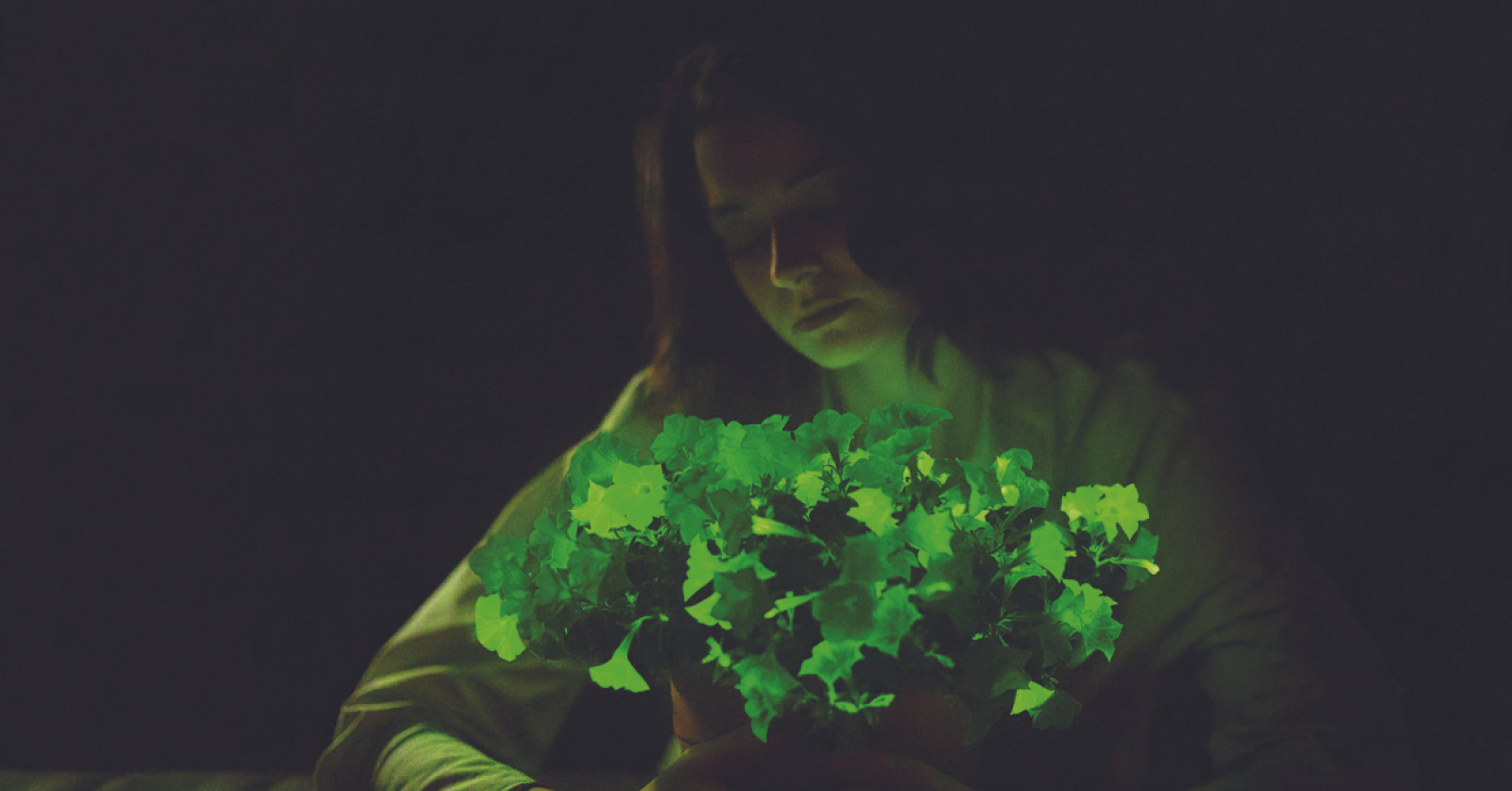March 14, 2024

Bioluminescent plants are now even brighter
Light Bio to begin selling firefly petunias to consumers with USDA approval
Light Bio, a synthetic biology startup, announced in February 2024 that it is beginning to sell its groundbreaking bioluminescent petunias in the United States. With support from biotech leaders such as NFX and Ginkgo Bioworks, Light Bio is reimagining the horticultural industry by introducing a new category of plants that emit an ethereal glow to enrich homes, gardens and public spaces. Although not yet available in Canada, the company did tell Landscape Trades they are actively exploring options to bring these plants to north of the border.
Scientists have revealed advancements in genetic modifications which enhance bioluminescence in a variety of plants by up to 100 times. The team of 26 scientists, working across nine research organizations, created the brighter plants by optimizing genes isolated from multiple species of luminous mushrooms.
The new research builds on an earlier discovery for creating continuously glowing plants by inserting DNA obtained from the mushrooms. Those researchers had revealed a surprising similarity between mushroom bioluminescence and plant metabolism, allowing for more visible light than was previously possible. In this new report, the scientists have adapted the inserted genes to further boost luminescence.
The improvements were not limited to glowing plants. The scientists showed that the genetic modifications also elevated luminescence in yeast and mammalian cells. But the luminescence in plants was entirely self-sustaining owing to the metabolic synergy. This enables perpetual illumination without any external aid. Petunias provided the brightest bioluminescence, especially in the flower buds.
Beginning in April, glowing petunias will be available under the brand Firefly Petunia, so named because the bright buds resemble fireflies. Last September, the USDA determined through its independent evaluation that Light Bio's genetically engineered Firefly Petunia may be safely grown and bred in the United States. This creates an unparalleled opportunity for plant enthusiasts to enjoy the experience of living light.
Light Bio chose the petunia as its first product because it is one of the most popular ornamental plants in the world. Petunias are easy to grow and produce an abundance of flowers. The Firefly Petunia is indistinguishable from conventional petunias, except that it gives off an ethereal aura at night. From seedling to mature plant, it glows without any specialized requirements or treatment.
The soft illumination of the Firefly Petunia is similar to moonlight, creating an opportunity for plant enthusiasts to enjoy the experience of living light. "This milestone — and the magical experience we are bringing to people across the country — has been decades in the making," said Keith Wood, CEO of Light Bio. "As part of the scientific team that discovered the bioluminescence genes from fireflies, I helped create the first glowing plant in 1986, which has inspired scientists worldwide. In the forty-odd years since, we have discovered a new bioluminescence technology that now allows us to bring these delightful plants to consumers. We can't wait to see their reactions and to discover the bright future ahead for this incredible technology."
"This is an incredible achievement for synthetic biology. Light Bio is bringing us leaps and bounds closer to our solarpunk dream of living in Avatar's Pandora," said Jason Kelly, CEO and co-founder of Ginkgo Bioworks. "This achievement isn't just novel and exciting — it shows how the power of synthetic biology can light a passion for nature and technology. We at Ginkgo are thrilled to continue to support Light Bio in illuminating the world. And we couldn't be more excited by our partnership, in which our teams are working together to make the next generation of their glowing plants ten times brighter."
Light Bio continually optimizes the genetics of bioluminescent plants to further increase brightness. Working in collaboration with Ginkgo Bioworks, Light Bio anticipates that future plants will be at least 10-fold brighter. More plant varieties and more colours are also envisioned. The underlying science also helps to shed light on the molecular physiology of plants. The teams believe that insights gained from this research will bring meaningful advancements across critical areas like food security and nutrition.
For more information on Light Bio and its glow-in-the-dark plants, please visit light.bio